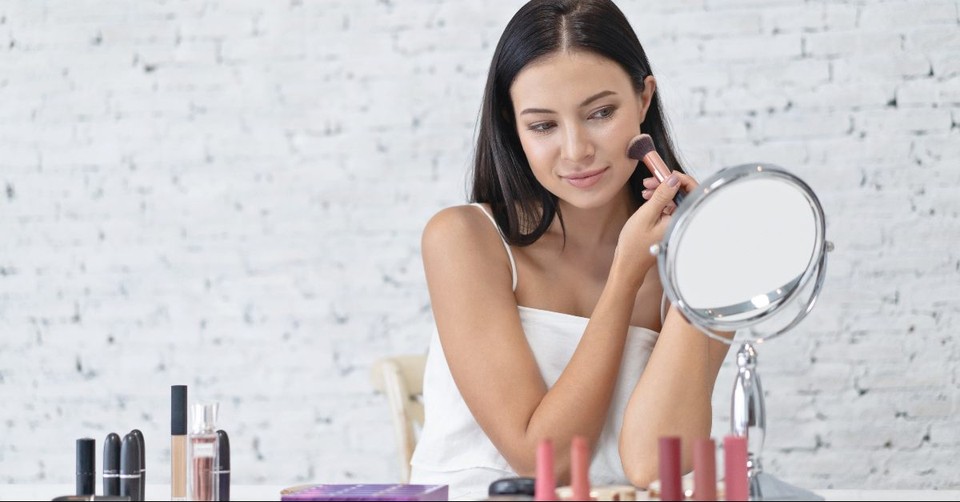Is It Wrong for Christians to Wear Makeup and Jewelry?

Flip through any magazine or TV channel, and it’s hard to miss the elaborate hair and makeup styles, jewelry, and other adornments on display. It’s big business, too — in spite of the pandemic, the global beauty industry market was valued at $511 billion in 2021, while the personal consumption of jewelry reached $94.6 billion.
But what does the Bible say about makeup and jewelry? Is wearing makeup or jewelry considered to be “wrong” or sinful in the eyes of God? Is it permissible for God’s people to wear lipstick, eye makeup, gold and silver necklaces, or other beauty enhancements?
While many people of faith have varying opinions about whether people should or should not wear makeup or jewelry, the Bible never condemns makeup or jewelry, nor does it discuss them in detail at all.
Let’s take a look at Scripture to see what is said about wearing makeup and jewelry.
Photo credit: ©Getty Images/zGel

What Does the Bible Say about Makeup and Jewelry?
The Bible says very little about makeup and jewelry, but we know they did exist in ancient times. At least two women of deep faith wore adornments. In Genesis 24, Abraham’s son Isaac gave Rebekah a gold nose ring, two gold bracelets, and other valuable gold and silver jewelry, which she wore for him. Likewise, the Bible shares how Esther — who went on to become queen and risk her life to save the Jewish people from destruction — had to go through 12 months of beauty treatments, including cosmetics, to prepare to meet with the king (Esther 2:12).
Other portions of the Bible refer to jewelry favorably, noting that God cared for His people like a loving husband would care for his wife, adorning her with rings, bracelets, necklaces, and even a beautiful crown, like a queen (Ezekiel 16:9-13).
But other places in the Bible refer to the wearing of jewelry or makeup negatively. For instance, in 2 Kings 9:30-33, the Bible shares how the wicked queen Jezebel “put on eye makeup” and “arranged her hair” before her execution.
In Jeremiah, the prophet laments the destruction of Jerusalem for its great sins, comparing God’s people to a woman attempting to make herself beautiful: “What are you doing, you devastated one? Why dress yourself in scarlet and put on jewels of gold? Why highlight your eyes with makeup? You adorn yourself in vain. Your lovers despise you; they want to kill you” (Jeremiah 4:30).
Similarly, in Ezekiel 23, Jerusalem is compared to a prostitute who courted her men by bathing, putting on eye makeup and jewelry, and then sitting on a couch before them (Ezekiel 23:40-42).
Mentions of jewelry or makeup also appear in the New Testament. For instance, in 1 Timothy 2:9-10, the apostle Paul urges Christian women to emphasize their good deeds instead of their beauty, dressing modestly and not wearing “elaborate hairstyles or gold or pearls.” And in 1 Peter 3, woman are urged that their beauty not “come from outward adornment” like gold jewelry (v. 3).
Photo credit: ©Getty Images/Margo Ovcharenko

Is It a Sin to Wear Makeup and Jewelry?
Given all this, some people are confused about whether makeup and jewelry are permissible for people of faith. But the Bible never says it is wrong or sinful to wear makeup or jewelry. While the wicked queen Jezebel wore jewelry, so did good women of faith such as Rebekah and Esther. While the prostitute that Jerusalem is compared to in Ezekiel wore makeup and jewelry, she also bathed and sat on a couch — neither considered “bad” or sinful behaviors.
The point is not that it is wrong to appear beautiful on the outside or even to wear adornments designed to enhance one’s outward beauty — what is wrong is when that becomes an idol, or when someone is attempting to use outward beauty in a way to attract, entice, or otherwise manipulate.
The Bible tells us repeatedly that what is on the outside is of the world; it is temporary. Our souls are what live on after our earthly bodies die. Proverbs 31:30 reminds us that “charm is deceptive, and beauty is fleeting.” Similarly, in Isaiah 40:8, we’re told, “The grass withers and the flowers fall, but the word of our God endures forever.”
Our confidence should not be rooted in temporary things: our bodies, or the things that adorn them, like jewelry, makeup, or other finery. These things wither.
Our confidence should be in Christ, who lives and lasts forever.
This is what Peter was saying above in speaking about how women should emphasize beauty within rather than external appearance and outward adornment. It’s not that adornment is evil or wrong in itself, but when we emphasize beauty of the flesh over that which lasts forever, this is not good. We are to value what lasts over what fades.
Indeed, as Peter elaborates, we should instead prioritize the beauty of the “inner self, the unfading beauty of a gentle and quiet spirit, which is of great worth in God’s sight. For this is the way the holy women of the past who put their hope in God used to adorn themselves” (1 Peters 3:4-5).
Put more plainly, it’s fine to gloss your lips, line your eyes, curl your hair, or don some sparkly earrings — there is nothing wrong with celebrating our external beauty. However, we must remember what is most important is the true self, the soul.
Photo credit: ©Getty Images/millann

Does God Care about Our Outward Appearance?
God loves all creation — spring, summer, fall, and winter alike. Similarly, he loves the young and old, the big and the small, the shriveled and the statuesque. He designed us fearfully and wonderfully, knit us together in our mother’s womb (Psalm 139:13-14), and not only sees us fully but appreciates all aspects of our outward appearance.
But God values us not for what is external.
As the Lord said to Samuel in 1 Samuel 16:7, “The Lord does not look at the things people look at. People look at the outward appearance, but the Lord looks at the heart.”
It’s similar to what Jesus said in John 7:24 “Stop judging by mere appearances, but instead judge correctly.”
God cares about what is in our hearts. Beauty is not the issue. Are we seeking to enjoy that beauty, or use that beauty to seduce, for evil purposes?
Should Christian Women Wear Makeup and Jewelry?
Christian women can certainly wear makeup and jewelry, just as Christian men might enjoy donning a good-looking suit, an eye-catching tie, or a handsome timepiece. But we must remember that external appearance is nothing in the big picture. As the apostle asks in James 4:14, “What is your life? You are a mist that appears for a little while and then vanishes.”
Not every woman (or man) wants to emphasize external appearance, and many feel personally called to push away that side of themselves to focus only on the internal being. This is perfectly acceptable as well. Whether you celebrate or disregard external appearance matters not, as long as you understand what is important: honoring the God-created soul, prioritizing salvation.
The Bible teaches that our present, earthly bodies will eventually weaken and die, but our souls will live forever — whether with God in heaven or eternally separated from Him.
As 1 Corinthians 15:50 says, “Flesh and blood cannot inherit the kingdom of God, nor does the perishable inherit the imperishable.”
Still, it is good to love our earthly body and treat it well. Designed by God, our bodies house our souls, and we are to treat them with care, respect, and honor.
As Paul reminds us in 1 Corinthians 6:19-20, “Do you not know that your bodies are temples of the Holy Spirit, who is in you, whom you have received from God? You are not your own; you were bought at a price. Therefore honor God with your bodies.”
Whatever way you choose to honor God with your body, be sure you are choosing the right intention: celebration, not manipulation, with an eye on the eternal and not the fleeting, temporary stuff of today.
Photo credit: Unsplash/Priscilla du Preez
Originally published September 18, 2025.






